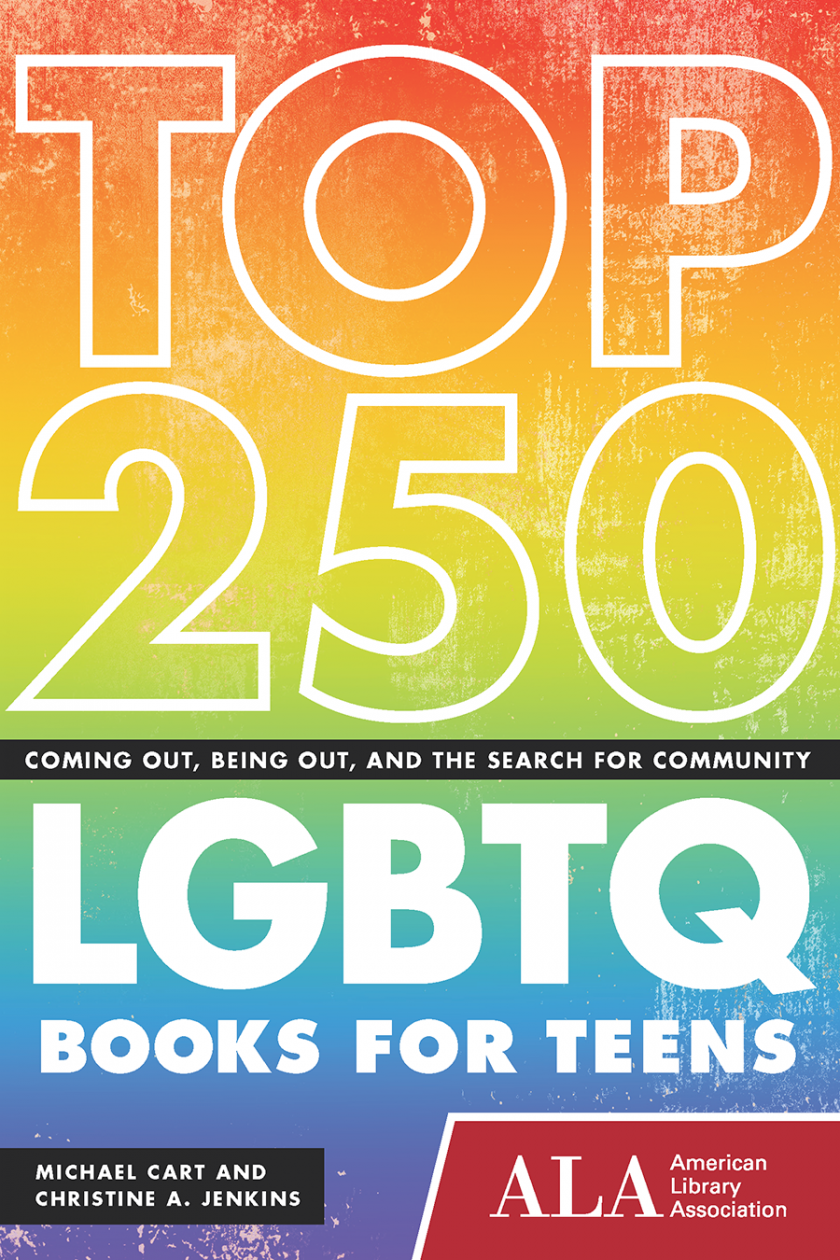Associate Professor Christine Jenkins and coauthor Michael Cart have written a book they hope will serve as a guide for young adults and for those who support lesbian, gay, bisexual, transgender, and questioning teenagers, including parents, educators, and librarians. Top 250 LGBTQ Books for Teens: Coming Out, Being Out, and the Search for Community is now available from Huron Street Press.
 For decades, LGBTQ issues and perspectives have been underrepresented in literature for young adults, but publication of books for teens containing LGBTQ content is steadily increasing. Jenkins and Cart read and reviewed more than six hundred books to create a selective bibliography of the “Top 250” with descriptive evaluations for each of the recommended titles—including novels, short stories, poetry, graphic novels, and nonfiction—which are geared to a wide range of middle and high school age reading levels and interests. Resources for developing relevant library programs, services, and collections are also included.
For decades, LGBTQ issues and perspectives have been underrepresented in literature for young adults, but publication of books for teens containing LGBTQ content is steadily increasing. Jenkins and Cart read and reviewed more than six hundred books to create a selective bibliography of the “Top 250” with descriptive evaluations for each of the recommended titles—including novels, short stories, poetry, graphic novels, and nonfiction—which are geared to a wide range of middle and high school age reading levels and interests. Resources for developing relevant library programs, services, and collections are also included.
Jenkins joined the GSLIS faculty in 1994 and became an associate professor in 2001. She has taught courses on literature for young adults and children, gendered perspectives in LIS, reading and readers, and the history of children’s books. Currently, Jenkins serves on the editorial board of Children’s Literature in Education and is a regular participant and advisor at The Bulletin of the Center for Children’s Books reviewer meetings. Top 250 is Jenkins’s fourth book and her second with Cart.

